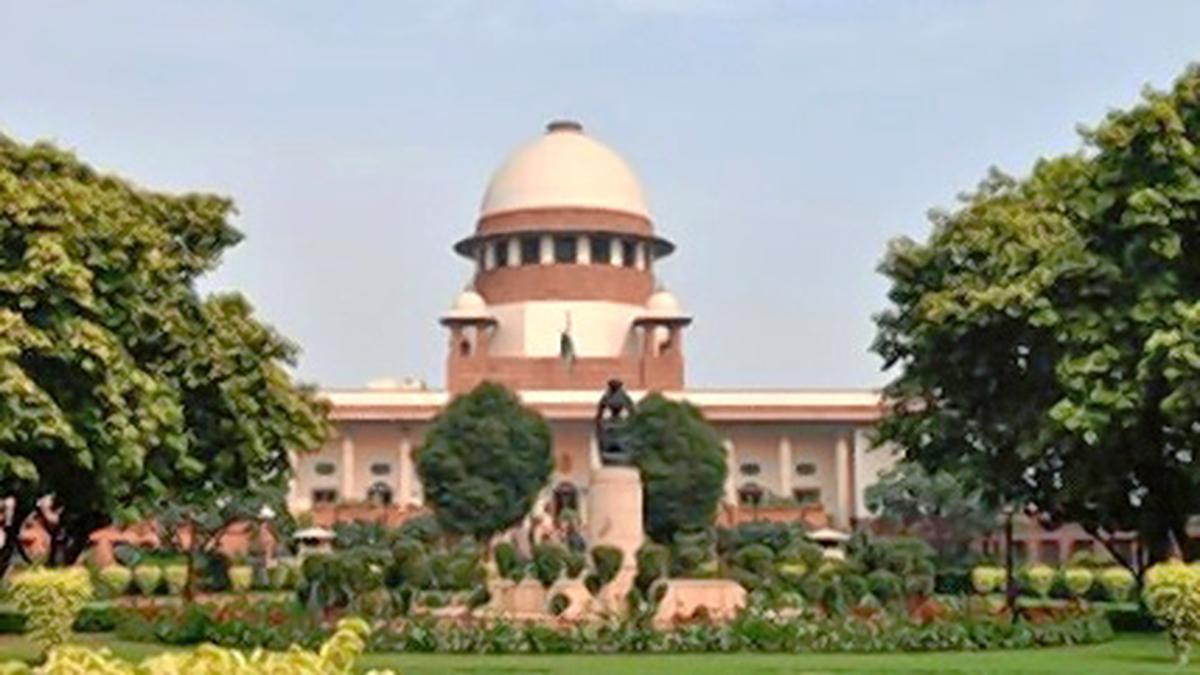
SC notice on plea challenging the use of GeM to outsource public employment
The Hindu
Supreme Court questions outsourcing public services through GeM portal, violating Constitution; Railway employees' union challenges termination.
The Supreme Court has admitted a petition questioning whether employment to public services can be “auctioned off” through the Government e-Marketplace (GeM) portal in violation of the Constitution.
A Bench of Justices P.S. Narasimha and Joymalya Bagchi issued notice to the Union government on the special leave petition filed by the Dakshin Railway Employees’ Union, concerning the termination of 152 housekeeping assistants or sanitary workers. They had been appointed by the Railway Recruitment Cell according to statutory Rules and then served in the frontlines of the COVID pandemic, only to be replaced by outsourced labour hired through the GeM portal.
“They fulfil the statutory criteria of age, qualification and their appointment is in consonance with the reservation policy for regular recruitment. Yet, the Southern Railway terminated their services on the basis that they were contract employees. Pertinently, their services were replaced not by regular permanent staff but other employees engaged through outsourcing without fulfilling any of the statutory criteria of age, qualification or reservation policy,” the petition submitted.
The top court directed the Southern Railway to use the services of the housekeeping assistants, including the petitioners, “wherever their employment is needed” in the future during the pendency of the petition.
“Policy of the government to engage persons through a tender process, ie, the Government e-Marketplace portal is ultra vires the Constitution… Posts governed by Rules under Article 309 [public services] of the Constitution cannot be outsourced through GeM policy,” said the employees union, represented by senior advocates Gautam Narayan, R. Vaigai and advocate Asmita Singh.
The railway union argued that outsourcing through GeM portal violated the constitutional obligation of the Southern Railway to provide reservation in public employment. “This obligation cannot be bypassed by shifting to ad-hoc arrangements such as outsourcing for engaging perennial services such as sanitation,” the petition contended.
The petition submitted that the Madras High Court, which had dismissed the petition in November last year, had failed to decide the important question of whether the action of the Southern Railway subverted the constitutional guarantees for appointments to public service found in Articles 14 (right to equality), 16 (right to equality in public employment), 309 (regulation of recruitment and service conditions of public employees in the Union and State governments), 320(3)(a) and (b) (prior consultation with Public Services Commissions in case of recruitments to public services) and 335 (recruitment of Scheduled Castes and Scheduled Tribes to services and posts).

 Run 3 Space | Play Space Running Game
Run 3 Space | Play Space Running Game Traffic Jam 3D | Online Racing Game
Traffic Jam 3D | Online Racing Game Duck Hunt | Play Old Classic Game
Duck Hunt | Play Old Classic Game











